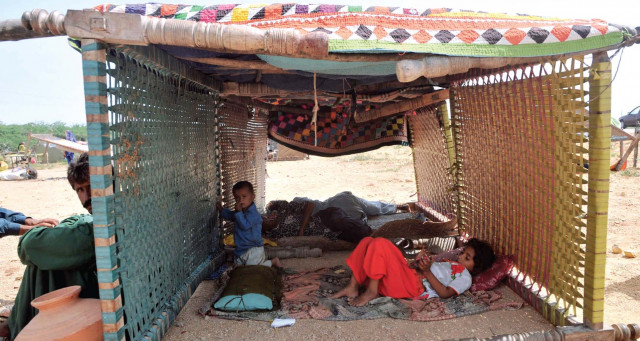Flood victims’ resentment hurting aid effort
Angry outbursts by flood victims reliant on scarce aid are hampering relief work in Pakistan

Flood victims’ resentment hurting aid effort
A month after monsoons triggered catastrophic flooding throughout the country, submerging an area the size of England, eight million are dependent on handouts for their survival, which they say are too slow coming.
Aid workers say they have fled outbreaks of violence amongst bitter survivors, living in makeshift camps, while there have been isolated, spontaneous protests that have occasionally forced road closures.
Jacques de Maio, the head of operations for South Asia for ICRC, said they had to halt two distributions recently due to unrest. “What we are detecting is a very worrying trend of areas where...people are so in need, so resentful of not getting enough aid, that they turn understandably aggressive and this is bad because it doesn’t help in our efforts to reach more of them,” he said in Geneva on Thursday.
Aid worker Aslam Khwaja, working for the Edhi Foundation, said he witnessed three violent outbreaks in the past few days, including an attack on an aid worker near Thatta city.”People have been getting violent because there’s no coordination among the various aid agencies and the government, which causes delays in providing relief goods and makes people angry,” he told AFP.
An AFP reporter said he had witnessed three small protests in the past few days in southern Sindh, with groups of about 50 chanting anti-government slogans outside their relief tents, seeking better relief provision. He said tensions were running high, often leading aid workers to throw supplies from trucks to avoid the risk of being caught in a crowd.”Everyone wants food for their children and that leads to fighting. We want to get food with dignity and respect” said one survivor in Thatta city, Jeando Khan. “They should give us food like humans and not throw the food to us as if we were dogs.”
While the international community has donated 700 million dollars, domestic anger has been mounting against the widely unpopular civilian government, which has come under fire for its handling of the crisis. The UN has warned that the slow pace of aid pledges could impede relief operations and says Pakistan faces a triple threat to food supplies -- with seeds, crops and incomes hit. “Given the number of those in need, this is a humanitarian operation of unprecedented scale,” Manuel Bessler, head of the UN’s coordination agency Ocha, said in a statement.
The floods have ruined 3.6 million hectares (8.9 million acres) of rich farmland, and the UN’s Food and Agriculture Organisation (FAO) said farmers urgently need seeds to plant for next year’s crops.
In southern Pakistan, hundreds of hungry and desperate familie from a relief camp in Thatta, blocked the highway to Karachi one morning this week, demanding the government provide more food and shelter. “No food or water has been provided to us for the past two days,” Mohammad Qasim, a 60-year-old resident of the flooded town of Sujawal, told AFP.
With the deluge flowing south, Sindh irrigation minister Jam Saifullah Dharejo said Friday that the last two towns lying between the flood and the Arabian Sea had now been completely evacuated. But he said a breach in a canal had caused new flooding further north in Sindh.”Around eight million people have been affected by the flood in Sindh and 2.5 million of them were displaced,” Dharejo said.
Prime Minister Yousaf Raza Gilani said Wednesday the flooding had caused economic losses of 43 billion dollars. The World Bank raised flood aid to Pakistan to one billion dollars, while the IMF approved 450 million dollars in emergency financing to help the nation cope on Thursday. The government’s official death toll from the floods has reached 1,760, but disaster officials have said that number will likely rise “significantly” when the missing are accounted for.
Published in The Express Tribune, September 4th, 2010.


















COMMENTS
Comments are moderated and generally will be posted if they are on-topic and not abusive.
For more information, please see our Comments FAQ